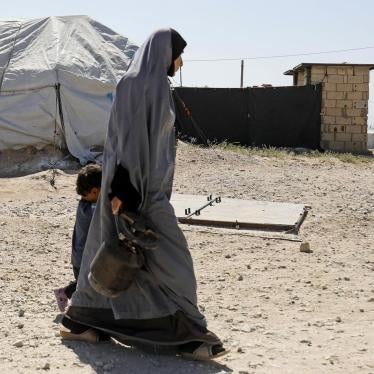(New York) - This week's high-level ministerial meeting about gender equality in international development assistance should promote the rights and needs of women with disabilities, Human Rights Watch said today. Specifically, governments should address the marginalization of women with disabilities in the declaration to be adopted on July 1, 2010.
"Women and girls with disabilities have largely been invisible within the international development agenda," said Shantha Rau Barriga, researcher and advocate on disability rights at Human Rights Watch. "Efforts to achieve the Millennium Development Goals - including those on poverty, education, HIV, and gender equality - will fall short unless governments and UN agencies include women and girls with disabilities in their programs, planning, and decision-making."
Women with disabilities make up at least 5 percent of the world's population. They face multiple discrimination because of their disability, gender, and in many cases, poverty. World leaders have adopted eight Millennium Development Goals, which include specific targets from halving extreme poverty to halting the spread of HIV/AIDS and providing universal primary education, by 2015.
Women and girls with disabilities - whether physical, mental, intellectual, or sensory - are often hidden in their homes, denied the right to go to school or get a job. They often do not have access to adequate reproductive health care or information on health issues such as HIV/AIDS. Many women and girls with disabilities experience forced sterilization, forced psychiatry, domestic violence, and sexual assault. They also face stigma and discrimination that block their participation in the community and negatively impact their self-esteem.
"In every country of the world, women with disabilities face barriers to inclusion and equality," Barriga said. "Addressing these barriers is essential to achieving global development goals, fulfilling human rights obligations, and ensuring that women with disabilities are recognized as equal human beings."
This week's meeting of the United Nations Economic and Social Council brings together health and development ministers from around the world to assess progress on the UN development agenda. This year's meeting focuses on gender equality and empowerment of women.
The Convention on the Rights of Persons with Disabilities, now binding law in more than half of the world, includes a provision (article 32) on international cooperation. This provision requires governments to ensure that international development programs are inclusive of and accessible to persons with disabilities. The convention also includes a dedicated article on women with disabilities, recognizing their marginalization in society and the challenges they face.






